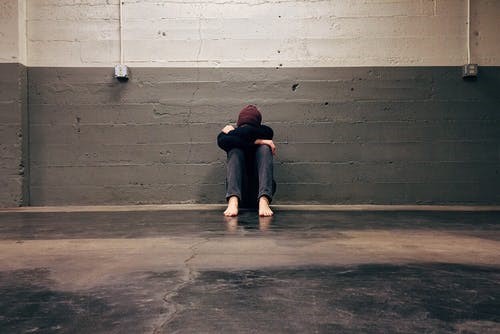Most people in the US suffer from various stress and anxiety disorders. Some of its symptoms can be mild, while others can be crippling, temporarily rendering a person unable to function properly.
If you need online healthcare services to help you with your anxiety, this blog is for you.
We’ll be discussing the different types of anxiety, panic, and stress disorders, what happens in an episode, and how to handle it.
File Name: Man-sad-sitting
Alt-Text: A sad man alone in a room sitting on the ground
Generalized Anxiety Disorder
A person suffering from GAD is too distracted by fears and worries to focus on their everyday life. Generalized anxiety disorder is where a person suffers from the inevitable feeling of something bad about to happen.
Panic Attacks and Disorders
Panic disorders are defined as abrupt panic attacks. Other conditions like agoraphobia typically occur due to panic disorders.
Obsessive-Compulsive Disorder
OCD makes a person think and behave in a repetitive way. These compulsions are essentially out of their control and force them to have recurring thoughts and sensations.
Phobias
Phobias are unrealistic, or irrational fears of activities, circumstances, and objects that otherwise present no danger. Some common phobias include fear of heights, spiders, and confined spaces.
Social Anxiety Disorder
A person with social anxiety disorder suffers a debilitating fear of being perceived negatively or humiliated by others. Also known as social phobia, it manifests itself as extreme shyness.
Another most common social phobia is performance anxiety or stage fright.
Post-Traumatic Stress Disorder
PTSD usually develops after a traumatic incident, manifesting itself as an extreme anxiety disorder. PTSD can be explained as a type of panic attack that often continues indefinitely and rarely subsides. The symptoms may include getting nightmares and flashbacks of the incident, being easily startled, and being hyper-vigilance.
File Name: Woman-crying-bruise
Alt-Text: A woman crying while holding herself for consolation
How Can You Manage Your Anxiety?
· Maintain social connections: Isolation makes anxiety worse. Try to keep regular meetings with loved ones, friends, and support groups to discuss your thoughts and concerns.
· Stress management: If you feel highly stressed about roles and responsibilities, find a way to give up these activities to ease your stress.
· Relaxation techniques: Practicing relaxation techniques regularly can help relieve stress. These include meditation, deep breathing, and progressive muscle relaxation.
· Exercise: It’s the easiest and natural way to relieve stress and anxiety. If you’re suffering from anxiety, exercising roughly 30 minutes every day can help you relieve your anxiety.
· Sleep: Getting a good night’s sleep can help reduce stress and ultimately improve anxiety. Your nightly sleep should be 7 to 9 hours to ensure quality rest.
· Caffeine, alcohol, and nicotine: Caffeine and alcohol can worsen your anxiety due to overstimulation. And while cigarettes may calm you down, nicotine tends to increase your anxiety since it’s a powerful stimulant.
Contact GetCareMD for an immediate online consultation for panic disorders. With our online doctors guiding through your episodes, you can learn to cope and even overcome your anxiety.
Contact us if you’re going through anxiety or stress alone.

